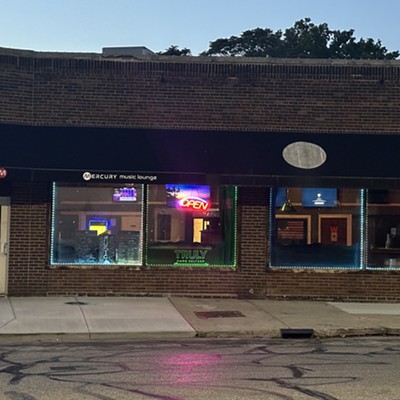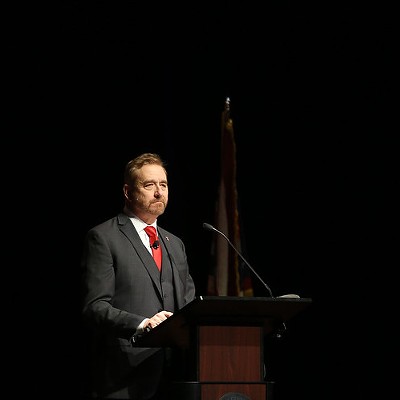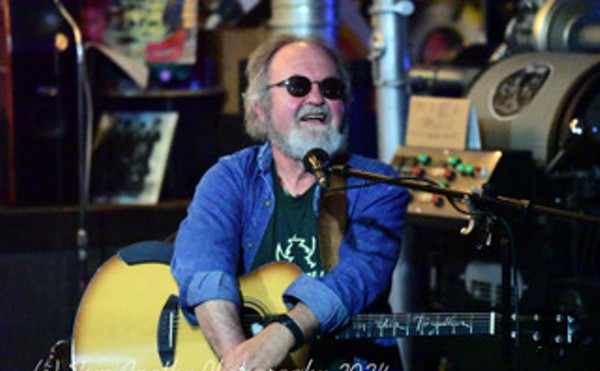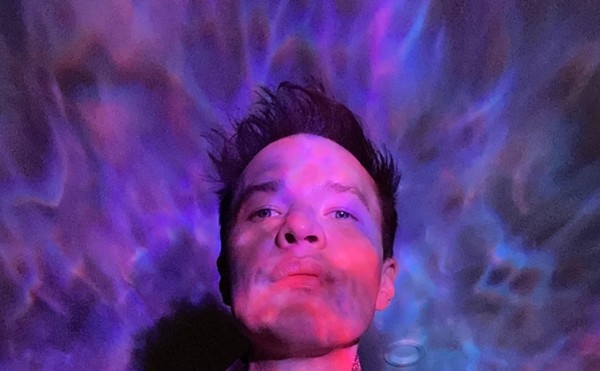[
{
"name": "Real 1 Player (r2) - Inline",
"component": "38482494",
"insertPoint": "2/3",
"requiredCountToDisplay": "9"
}
]
First-time author Jeff Stevenson, a California guy who now calls New York home, spent seven years researching the book which tells the tale of how Schwartz, a guitar phenom from an early age, ended up going from classic rock acts such as the James Gang and Pacific Gas and Electric to fronting the Christian rock act the All Saved Freak Band. Schwartz turns 75 this month and will play a special birthday show at the Beachland to mark the occasion.
Due out June 2 and currently available for preorder, Fortney Road includes more than 50 photographs and images and features interviews with 17 former members of Reverend Larry Hill’s Ohio-based Church of the Risen Christ community. Modern-day musicians such as David Byrne, Joe Walsh and the Black Keys’ Dan Auerbach are also quoted. Adam Palmer (editor of Brian Welch’s bestselling Save Me From Myself) and Dick Marek (editor of The Silence of the Lambs) contributed to the editing process.
Stevenson first became interested in Schwartz’s story in 1976 after he saw an ad for the All Saved Freak Band that featured Schwartz’s name in bold print. He knew of Schwartz from the classic blues rock act Pacific Gas and Electric. When he heard “Elder White,” the first song on the All Saved Freak Band’s first album, he was immediately taken aback.
“I heard that and it was really great music,” he says.
He asked Glenn Kaiser, a blues guitarist friend in the Christian community, about the All Saved Freak Band and his buddy told him he didn’t know much, only that the “women had to walk around and look at the floor.”
“That image stuck with me for 30 years,” he says. “It just stuck with me. I wanted to know why. I wanted to know why Glenn ended up with this group of people. That’s the hook that made me want to know about him and these people in the cult.”
The book recounts the story of the cult but also touches on Schwartz’s life, interweaving the two narratives throughout. Stevenson writes that Glenn had a good childhood and that he learned to play guitar at age 11. In doing his research, Stevenson called his brother Gene, with whom Glenn plays in the Schwartz Brothers, and left a message with him for Glenn. Glenn called back and talked to Stevenson for more than two hours about his life before, during and after his time at Fortney Road.
“He had a good childhood,” Stevenson says. “He learned guitar so quickly. He and his brother Gene were close and remain close. The wonderful thing is the stories I got from interviewing his son Bob. He said that his dad was a wonderful guy. He’s fall down funny, and he acts childish in a good way. I didn’t interview his other son, who lives in a small community. Growing up, Glenn said he had no complaints about his family. He picked up so quickly on guitar lessons that his dad paid for a week's worth of lessons for a single day. Glenn could keep up with it.”
The book recounts how Schwartz came to become a Christian and documents his meeting with cross-carrying preacher Arthur Blessitt, whom he met one day while walking down Sunset Boulevard. “[Blessitt] was preaching on the street corner and had these weird jokes he would say like ‘get high on Jesus,’” Stevenson says. “Glenn was touched by what Blessitt was saying. I reached out to Arthur Blessitt on email and at first he thought I was trying to trash Glenn. When I told him that wasn’t the case, he calmed down and emailed me back and told me about how Glenn heard the message and wanted to become a Christian. They prayed together and at that point, Glenn became a 'Jesus freak.' He was totally converted. He told everybody about Jesus, reaching out to Janis Joplin, Jimmy Page, Johnny Winter and Gregg and Duane Allman of the Allman Brothers Band.”
Stevenson also set out to dispel some of the myths about Schwartz. It’s often reported that Jimi Hendrix requested Schwartz play his birthday party. Stevenson contacted Cheap Trick’s Bun E. Carlos, a Hendrix fanatic, to find out where Hendrix would have been on his birthday. Turns out, Hendrix did happen to see Schwartz that day, but it was just during an impromptu backstage jam session at Madison Square Garden where the Rolling Stones were playing. “There was no invitation,” Stevenson says. "Glenn told me, 'Jimi stopped by and listened for a bit and nodded his head. But nobody cared who I was.'"
Stevenson also clears up the actual date when Glenn left the James Gang: “Most histories of the band state that Glenn Schwartz left in April of 1969 but it was actually toward the end of November 1967 that Glenn left Ohio—and the James Gang—for California and PG&E. Soon after, Joe Walsh, the guitarist in one of Kent, Ohio’s top bands, the Measles, replaced Glenn.”.
In the end, Stevenson hopes that the book serves as a warning against religious cults and the damage they can do.
“When I started this, I didn’t know much about [cult leader] Larry Hill,” Stevenson says. “Word soon got out about my project, and that’s when reporters started to phone and send me emails. One told me, ‘On the day you hear Reverend Larry Hill has died, remember to wear thick-soled shoes because hell will be stoked up extra hot.’ With a statement like that and the others I’d received, I knew I had to pursue the story.”
And what does Stevenson think Schwartz would have amounted to if he hadn’t joined that religious cult and derailed his career?
“There’s a great quote by [All Saved Band co-founder] Joe Markko at the end of the book that sums it up so well,” says Stevenson. “He says the nicest thing. He says, ‘Glenn was such a good man with such a gentle heart. I think if he hadn’t encountered Larry Hill, he would have made music that influenced an entire generation.’ Pacific, Gas and Electric was never a huge band, but if he had stayed with them, he could have gone on to make amazing music like Eric Clapton and Mark Knopfler. When you listen to the All Saved Freak Band, the music is really good but the abuse was so horrific that it destroyed him.”
The Schwartz Brothers, 7:30 p.m. Friday, March 20, Beachland Ballroom, 15711 Waterloo Rd., 216-383-1124. Tickets: $6, beachlandballroom.com.










